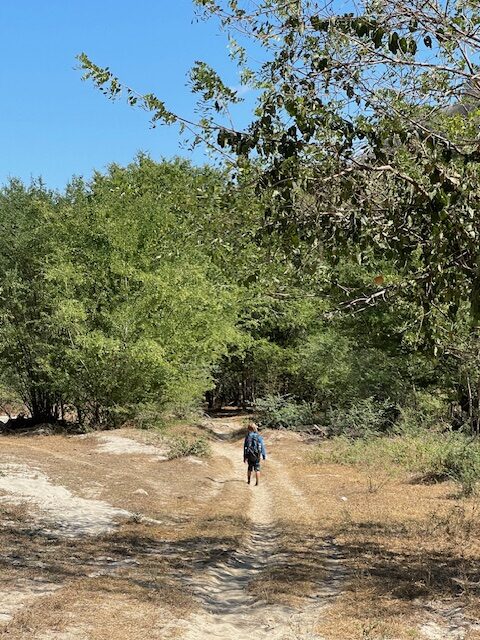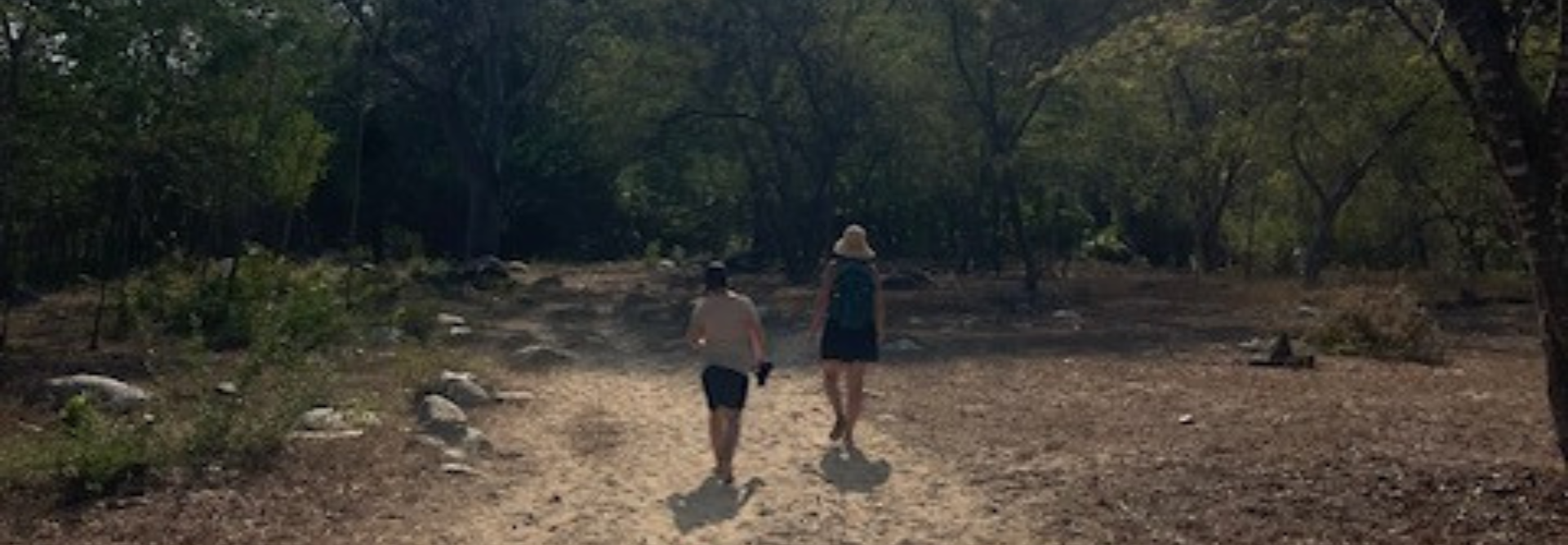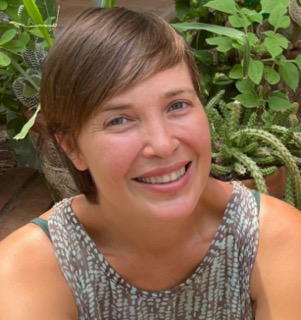Our unschooling journey
My son was not even “school-aged” when my family started our unschooling journey. For those that follow our podcast Radical Learning Talks, you will have heard the story already... Our journey started when I became pregnant with my son. That’s where the questions began and soon evolved. How and where would I give birth to our son? How and where would he sleep? How and what would we feed him? Where would he go to school? When would he learn to read? What about math? How will he get a job? How will he be successful?
These were all questions that I and others asked that gradually led me to walk the path less traveled... Homebirth, co-sleeping, child-led weaning, elimination communication, directing a self-directed learning community, and, later, unschooling.
All these things required us to lean into our intuition and trust ourselves, each other and our child.
What is clear to me is that I don’t always have to know the answers, but what I do need to know is how to honor them when they show up.
Choosing an unconventional learning path can be challenging
In our years of unschooling, I can’t say that it has always been easy. Anyone that has stepped away from conventional schooling knows that it’s easy to get tripped up in the adult gaze.
Worrying about what others will think of your kid and, let’s admit it, what they will think about you as a parent is totally normal.
What schooling tells us is that there are certain things that we all “need” and “should” do and learn by a certain point in our lives. Otherwise, we won’t get a job and be “successful.” Those things rarely include life and social-emotional skills that actually can save our or other’s lives if needed. Instead, they include things like reading, writing, and arithmetic. (Fun fact, I actually had to google how to spell arithmetic while writing this – is it with “i” or “y”, “e” or “a?” – and I completed university, so go figure!)
The mastery of these subjects is what supposedly predicts the quality of your life. It’s wild when you think about it, but most folks don’t ask, “How happy is your kid?” or “What lights your unschooler up?”
What people care most about is what your young person is learning. If it can’t be proven in a worksheet or test then it is probably invalid. And, guess what?... They are failing, and undoubtedly you are also failing as a parent.
Recognizing all the ways kids learn
I share these things not because I believe in or even care about these judgments any longer, but because unfortunately, this is the reality we face when we step outside of our unschooling bubble.
I think it’s the reason why many of us are so eager to recognize all the ways our kids are learning.
I want to share a story of how those “clues” are found in the strangest of times and places, and how we can also let go of the need to find them. I want to share a story about math!
My son is almost 10 and he has never been to a conventional school. He’s always been an active kid with advanced motor skills, doing things with his body I can’t even begin to understand or imagine.
When it comes to “academics,” he clams up and couldn’t care less.
I won’t lie and say that I’ve never asked myself, “What about math?” It usually pops up when someone is grilling us, or when a seasoned school wound or fear rears its nasty little head. I quickly remind myself of the one time many years ago when I tried to do a Star Wars math workbook with Sai. When I looked up, he said “Are you serious with this?”
We both laughed, and I went back to examining and working through healing my own school wounds around fear of failure and not being good enough. We haven’t worked on math formally ever since.
What self-directed learning can look like!
About a month ago, we were in Mexico eating at a taco stand. While we waited for the vendor to give us our bill, I suddenly realized that Sai was making calculations on our dusty car.
He was figuring out how much our bill was! He checked in with me to make sure he had gotten things right and I nodded my head in amazement.
This kid taught himself math!!! I mean, I trusted that it would happen, but there it was... The writing was on the car!
I share this not to prove that learning is happening, because writing on that car sure wasn’t for me... My son needed it for himself, and that’s what matters most to me.
All humans figure things out and learn on the go
I also share this to maybe give a little hope to those parents, grandparents, and “arithmetic lovers” that have and hold on to old beliefs about how we learn. I’ve found that we all learn the things we need to learn in our own time.
As adults we go onto Google and relearn spelling and grammar so why wouldn’t our kids be any different? What makes us superior in our capacity and ability to learn and navigate the world? We figure things out, so why wouldn’t our kids?
So how did Sai learn how to do math?! I really don’t know and I ask myself... Do I really need to know?
Embracing the unknown
Here’s the thing: this journey has really been about letting go of the need to prove that learning is happening. We live in a society obsessed with measuring and testing, so it’s easy to think we need to show evidence of learning. But I’ve learned that learning doesn’t always look like a worksheet or a test score. Sometimes, it’s quiet, invisible, and unfolding in ways that don’t need to be “proven” to anyone.
When doubts and fears pop up, whether from other people or my own old beliefs, I remind myself that learning happens in all kinds of ways, and it doesn’t always fit into those neat little boxes society expects. My peace comes from remembering that my relationship with Sai is what matters most. Instead of obsessing over milestones, I focus on nurturing his agency, curiosity, autonomy, and joy — and then the learning naturally follows.

Trusting Sai to learn in his own time, without needing to prove anything, has become quite a practice for me. In fact, it’s a deschooling practice and it’s about letting go of expectations, perfectionism, and the fear of not measuring up. It’s about being present and accepting that I don’t need to know exactly how or when learning will unfold. In the same way that the point of life is to live, not to prove that you are living.
Ultimately, this deep inner work has helped me break free from the conditioning I’ve carried from conventional schooling. Society has taught us to think of learning in one specific way, but I’ve had to challenge that and make room for new ways of knowing. It’s about sitting with discomfort, observing both myself and my kid, questioning old beliefs, and following my kids’ lead instead of trying to force everything into a box. It’s a work in progress, and I’m learning how to listen and leave the dust on the car...because the writing isn’t always on the wall.
If you enjoyed this article and feel called to give back to ASDE, here are ways you can support our work:
- Donate money
- Share our content with others! Click one of the buttons above to easily share on Twitter, Facebook, or email.
- Consider becoming a Contributor for Tipping Points
Tipping Points Magazine amplifies the diverse voices within the Self-Directed Education movement. The views expressed in our content belong solely to the author(s). The Alliance for Self-Directed Education disclaims responsibility for any interpretation or application of the information provided. Engage in dialogue by reaching out to the author(s) directly.






